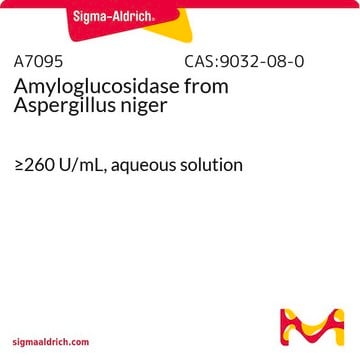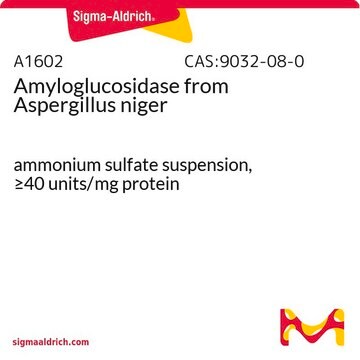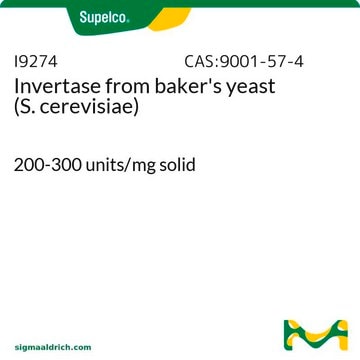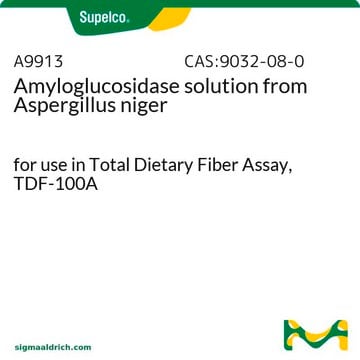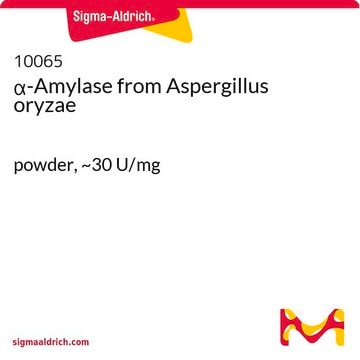ROAMYGLL
Roche
Amyloglucosidase
from Aspergillus niger
Sinónimos:
Aspergillus niger, disaccharidase-type a-glucosidase
Seleccione un Tamaño
$190.00
Disponible para envío el14 de abril de 2025Detalles
Seleccione un Tamaño
About This Item
$190.00
Disponible para envío el14 de abril de 2025Detalles
Productos recomendados
origen biológico
Aspergillus niger
Nivel de calidad
Formulario
lyophilized
actividad específica
6 U/mg (approximately 6 U/mg lyophilizate at +25°C with glycogen as the substrate)
~6 units/mg protein (At 25 °C with glycogen as the substrate.)
mol peso
97 kDa
envase
pkg of 3,500 U (11202367001)
pkg of 500 U (11202332001)
fabricante / nombre comercial
Roche
pH óptimo
4.6-4.8
temp. de almacenamiento
2-8°C
Categorías relacionadas
Descripción general
Especificidad
Aplicación
Acciones bioquímicas o fisiológicas
Nota de preparación
The following concentrations should be taken as a guideline:
- Western blot: 1 to 10 μg/ml
Working solution: Tris-buffered saline containing 0.1% Tween 20.
Storage conditions (working solution): 2 to 8 °C
Otras notas
Palabra de señalización
Danger
Frases de peligro
Consejos de prudencia
Clasificaciones de peligro
Resp. Sens. 1
Código de clase de almacenamiento
11 - Combustible Solids
Clase de riesgo para el agua (WGK)
WGK 1
Punto de inflamabilidad (°F)
does not flash
Punto de inflamabilidad (°C)
does not flash
Elija entre una de las versiones más recientes:
¿Ya tiene este producto?
Encuentre la documentación para los productos que ha comprado recientemente en la Biblioteca de documentos.
Los clientes también vieron
Nuestro equipo de científicos tiene experiencia en todas las áreas de investigación: Ciencias de la vida, Ciencia de los materiales, Síntesis química, Cromatografía, Analítica y muchas otras.
Póngase en contacto con el Servicio técnico
